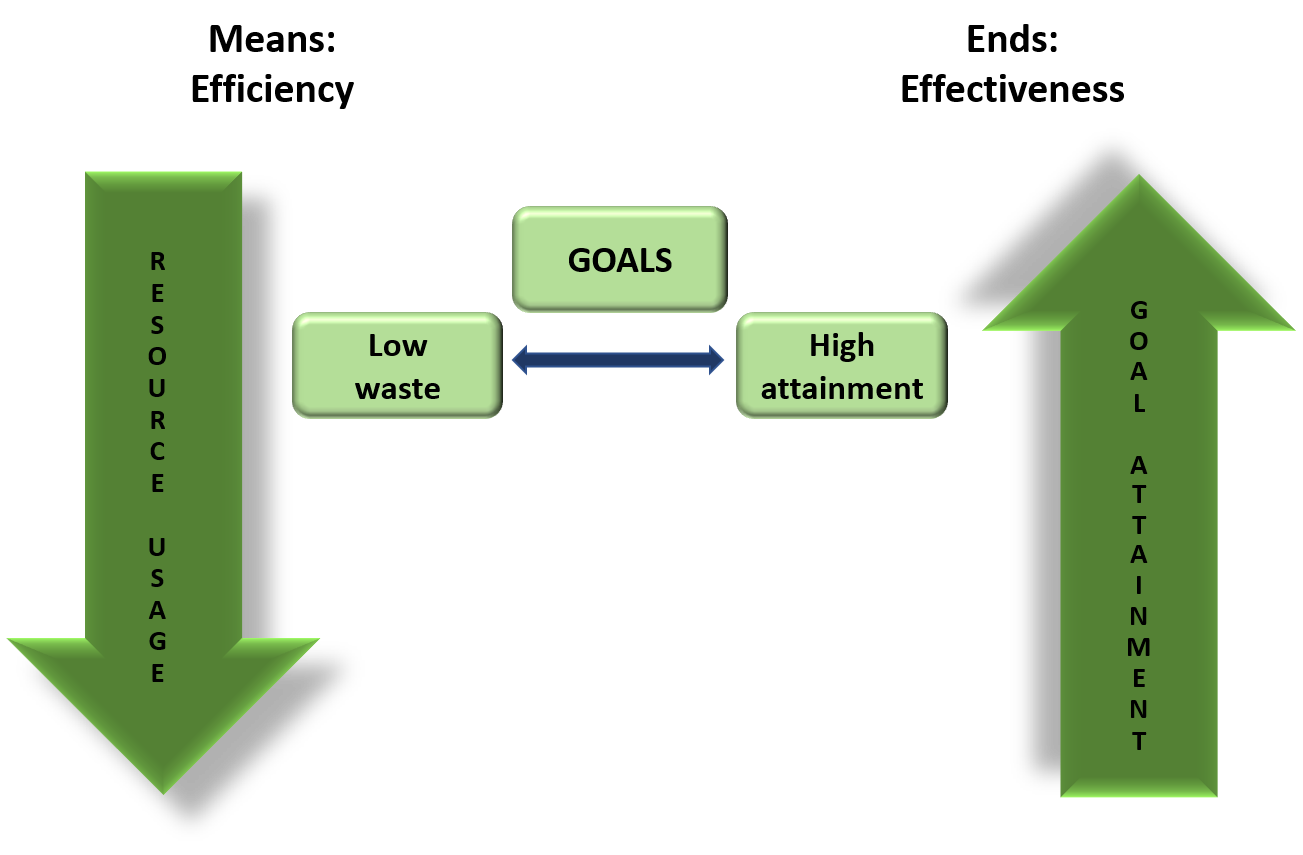Managers handle two actions:
- Enhance efficiency
- Enhance effectiveness
Efficiency is a vital part of management. It refers to the relationship between inputs and outputs. If you get more output for a given input, you have increased efficiency. Similarly, if you can get the same output from less input, you again increase efficiency. Since managers deal with input resources that are scarce - money, people and equipment - they are concerned with the efficient use of these resources. Management, therefore, is concerned with minimizing resource costs.
It is not enough simply to be efficient. Management is also concerned with getting activities completed; that is, it seeks effectiveness. When managers achieve their organizations’ goals, we say they are effective. So, efficiency is concerned with means and effectiveness with ends.

Efficiency and effectiveness are interrelated. For instance, it is easier to be effective if one ignores efficiency. Seiko could produce more accurate and attractive timepieces if they disregarded labour and material input costs.
Some public service organizations have been regularly attacked claiming they are effective but extremely inefficient; that is, they get their jobs done but at an exceedingly excessive cost.
Management is therefore concerned not only with getting activities completed (effectiveness), but also with doing so as efficiently as possible.
Can organizations be efficient and yet not be effective? Yes, by doing the wrong things well!